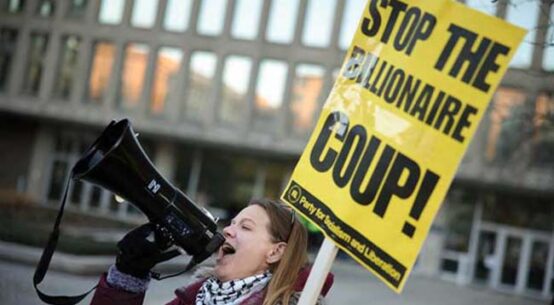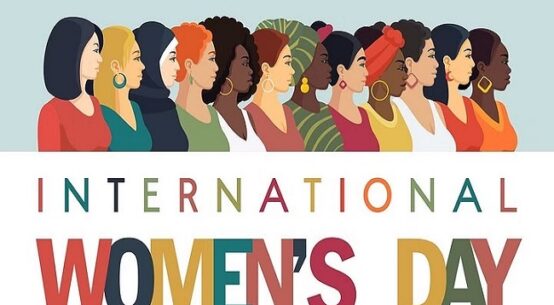German Ambassador to Dhaka Achim Tröster in an interview with The News Times said that Bangladesh has emerged as an important player in South Asia after 50 years of its independence.
“The country now has much better disaster management capacity and is also self-sufficient in food. Also on a regional scale, Bangladesh’s economy shows an excellent performance, mainly with regard to the per capita income” said Achim Tröster
Full details of the interview are as follows:
NT: Bangladesh has become a middle-income group country this year. How do you see the economic development of Bangladesh in the last 50 years?
Achim Tröster: Bangladesh’s development since its inception has been very impressive. When Bangladesh emerged on the map, it was confronted with a lot of challenges – from natural disasters, famine to food insecurity in its infancy years.
Now after 50 years, BGD has emerged as an important player in South Asia. The country now has much better disaster management capacity and is also self-sufficient in food. Also on a regional scale, Bangladesh’s economy shows an excellent performance, mainly with regard to the per capita income.
With an average annual growth of about 5%, largely because of its youthful and working age population, Bangladesh does have the potential to continue to make rapid progress. In fact, one can see the many mega infrastructural projects that are set up around the country which are bound to transform the country in the upcoming years.
According to Price Waterhouse Coopers, Bangladesh has even the potential to become the world’s 23rd largest economy by 2050.
NT: What is the present trade volume between Bangladesh and Germany? What is our target to reach bilateral trade within the next five years?
Achim Tröster: Bilateral trade between the two countries amounts to over $7 billion, with Germany importing over $6 billion worth products, mostly textile. It is Bangladesh’s second largest export market after the US. In 2020, Germany imported $6.53 billion and exported only $588 million worth of goods. With the forecasted continued growth and prosperity in Bangladesh, we very much hope that the imports from Germany to Bangladesh will significantly rise in the next few years.
NT: The government is working on improving the business environment in Bangladesh. What are your observations about the business environment?
Achim Tröster: Despite the growth of Bangladesh, the country is in need to secure more foreign direct investment like its regional peer countries. A lot of observers assert that Bangladesh’s business climate highlights high regulatory uncertainty, which may prevent foreign investors from entering the country. While choosing host countries, investors set great stores in assessing the clarity and transparency in existing policies, reliability of government officials and adherence to rules and regulations.
For instance, in the last World Bank ease of doing business ranking, Bangladesh ranked 168th out of 190 in 2020. This seems to not be commensurate with Bangladesh’s own ambitions. There is obviously still much space for improvement. Corruption is another factor that is often mentioned as an obstacle to business and further development. Other reported issues are limited scope of financing, irregularities, complex bureaucracies and problems in swiftly resolving business disputes.
On the positive side, the Government of Bangladesh is taking steps to create future markets, diversify products and exports, and increase domestic and foreign investment. The Bangladesh Investment Development Authority (BIDA) has initiated powerful reforms to attract foreign investors and improve the business environment, but we still need to see more of this. The government of Bangladesh also took valuable initiatives to set up Export Processing Zones (EPZs) in the different parts of the country, which offer many fiscal and non-fiscal incentives for investors.
NT: How do you see the prospect of a Blue Economy in Bangladesh?
Achim Tröster: There are many prospects in the blue economy for Bangladesh, especially in the sectors of renewable energy, transport, logistics, light engineering, harnessing marine and mineral resources.
Bangladesh is already building international standard ships and exporting them abroad. The country is amongst the top shipbuilding countries, which is a promising development for the shipbuilding industry in Bangladesh.
Moreover, over 90% of its external trade is seaborne. The government is already implementing different projects such as ‘Matarbari Deep Seaport’, ‘Patenga Container Terminal’ and ‘Bay Terminal’, to meet the growing demand of trade.
There are also opportunities in renewable energy by harnessing wind and/or waves and tides.
Bangladesh being a riverine country, it offers a significant comparative advantage in inland water transport. Hence it can further benefit from a better river interconnectivity system.
Germany can offer transfer of technology, equipment and technical knowledge in many of these areas.
NT: The Russia-Ukraine conflict has created a sense of insecurity in the world leading to price hikes of essential commodities. How do you explain the situation?
Achim Tröster: The Russia-Ukraine crisis means a crisis in global oil and liquified natural gas (LNG), leading to a price hike. A hike in prices of global commodities and uncertainties in the world economy may have an impact on Bangladesh as well. The effects of the oil price hike would be determined by how long the sanctions last.
The cost of doing business can increase significantly due to the increase in freight rates after oil prices. The conflict may also badly impact the prices of some basic commodities such as wheat, industrial raw materials and industrial machinery as both Russia and Ukraine are major sources for these items.
Entrepreneurs are concerned that Bangladesh will lose one of the most promising apparel export destinations such as Russia, if various Russian lenders are excluded from the SWIFT messaging system.
NT: The European Union, USA, and Canada have put sanctions on Russia. In retaliation. Russia has also imposed sanctions on western countries. Do you see an impact of Russia -Ukraine war on the Bangladesh-German business?
Achim Tröster: Putin’s aggression is impacting the whole world order, hence as well trade relations and supply chains all over the world. We have seen in Germany a sharp rise in inflation, most of all for energy. I would not rule out that a loss of purchasing power in Germany would not in the medium term also lead to receding demand for goods produced in Bangladesh. The Russian war is wrong, breaching not only International Law, but also destroying families, killing individuals and devastating basic infrastructure like hospitals, apartment buildings and cultural places. No economy worldwide will be safe from negative impact. The war must stop immediately to avoid further loss of human life and negative economic impacts.
NT: What is the number of Bangladeshis living in Germany and how do you evaluate their contribution to your country?
Achim Tröster: According to an EU funded study of UNDESA, some 14,000 Bangladeshis live in Germany (60 percent are male). We do not have any exact information of the kind of jobs they do in Germany. But Germany has a labor shortage in the areas of nursing, caregivers and hospital staff, which Bangladeshis can fill in the future. Recently many students are choosing Germany as their priority destination.
NT: Bangladesh and Germany celebrate 50 years of diplomatic relations this year. How do you see the social achievements of Bangladesh after 50 years?
Achim Tröster: Over the past five decades, Bangladesh has achieved an outstanding socio-economic development and Germany is delighted to contribute in the process. Bangladesh, despite being exposed to frequent natural disasters and poverty, has shown strong character for resilience and growth. The poverty rate has been halved since 2000 and it has one of the highest economic growth rates in Asia even during the Covid-19 pandemic. Electricity is now available everywhere in the country. Bangladesh despite being in the frontline of the battle against climate change has shown remarkable progress in preparedness and resilience against natural disaster, something that we in Germany should also learn from to mitigate our loss during natural disaster as we have seen it in 2021.
NT: Germany offers scholarships to students of developing countries. Can your government give scholarships to Bangladeshi students in its educational institutions?
Achim Tröster: Germany has many different kinds of universities, all of which offer high quality. If you search the scholarship database in the DAAD Bangladesh website, there will be 91 scholarship options at this moment. The students only need to find the right program for them. Currently, over 3000 Bangladeshi students are studying in Germany. In 2019, there was a 34% rise of Bangladeshi students in German institutions. Germany is an outstanding education destination for high potentials and advanced education. We offer excellent PhD and research programs.
NT: Some 1.1 million Rohingyas are living in Cox’s Bazar after the Myanmar government pushed them out of its country. How do you see the Rohingya issue in Bangladesh?
Achim Tröster: First of all, I would like to express my gratitude and appreciate the Government of Bangladesh for offering refuge to about one million Rohingya refugees from Myanmar. Refugee management requires resources and Bangladesh despite being a developing country has shown immense courage by taking up the challenge. Throughout the last four years, Germany has contributed by providing humanitarian assistance to Rohingyas and the host communities in Bangladesh, investing more than 53 Mio. EUR since 2018. As a strong sign for Germany’s solidarity with Bangladesh, the German Federal Minister for Economic Cooperation and Development Dr. Gerd Müller announced a suspension of all development cooperation with Myanmar after visiting the Rohingya camps in the beginning of 2021. We are convinced: A durable solution has to be regional, Germany, the EU and the UN are ready to support.


